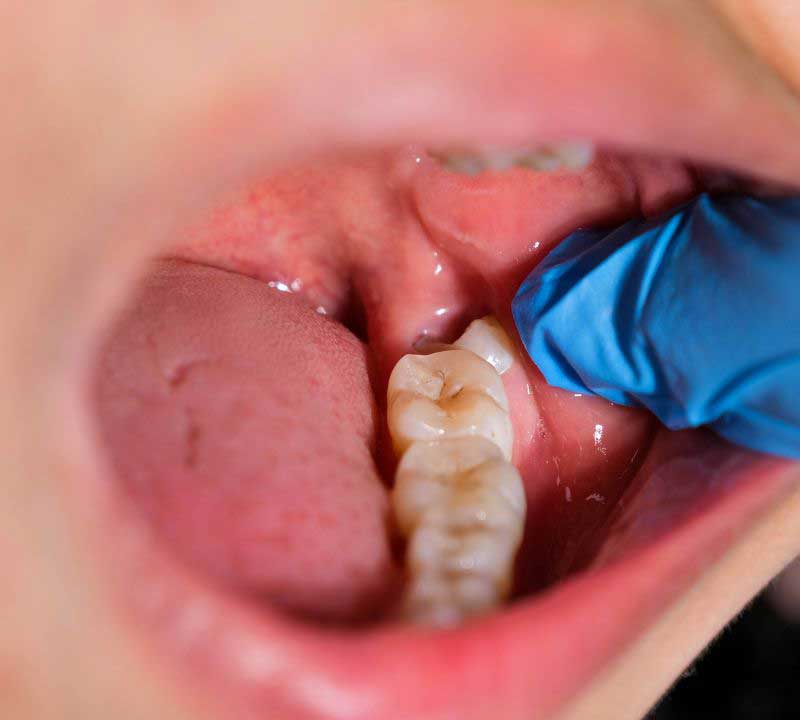Comprehensive Guide to Wisdom Teeth Removal Aspendale: What to Expect
Wiki Article
Checking Out Different Sedation Options for a Comfortable Wisdom Teeth Extraction Experience
The usage of sedation throughout such procedures has become significantly typical to reduce anxiousness and pain. With a range of sedation choices available, from local anesthetic to basic anesthesia, each method uses differing levels of relaxation and discomfort control.Local Anesthetic
Regional anesthetic is a generally used approach for numbing specific areas of the mouth throughout wisdom teeth removal treatments. By providing a local anesthetic, such as lidocaine, a dental practitioner can make certain that the patient remains pain-free and comfortable throughout the extraction procedure.One of the main benefits of regional anesthetic is its targeted numbing result, which means that only the details area being dealt with is impacted. This local approach lessens the threat of systemic adverse effects and enables a quicker healing post-procedure. Additionally, local anesthetic is thought about to be a risk-free and regular practice in dental care, with minimal dangers involved when carried out by a qualified expert.
Laughing Gas
Nitrous oxide, typically known as chuckling gas, is a type of sedation commonly used in dentistry to aid clients kick back throughout oral procedures. This sedation option enables the client to remain receptive and conscious throughout the treatment while feeling at simplicity and comfy.In addition, laughing gas is known for its fast recovery time. As soon as the mask is eliminated, the effects of the gas disappear rapidly, enabling clients to resume their regular tasks without sticking around sedative effects. This makes nitrous oxide a hassle-free selection for those who need to drive themselves home after the oral consultation. In addition, nitrous oxide appropriates for clients of all ages, making it a versatile sedation alternative for wisdom teeth removals and other dental procedures.
Oral Sedation
Dental sedation, a pharmacological method utilized in dentistry, involves the management of sedative drugs by mouth to induce a kicked back state during dental procedures. This form of sedation is frequently utilized for individuals going through wisdom teeth extraction to minimize anxiety and discomfort. The medicines suggested for oral sedation belong to a course of drugs called benzodiazepines, which have sedative, anxiolytic, and amnesic homes. Commonly, the person takes the suggested drug before the treatment, permitting ample time for the sedative effects to hold.One of the key advantages of dental sedation is its convenience of management. Unlike intravenous sedation, oral sedation does not require needles or injections, making it an extra comfy choice for people with a concern of needles. Additionally, oral sedation is considered secure and effective when administered by trained oral specialists. However, it is essential for people to comply with pre-operative instructions supplied by their dental practitioner, such as avoiding from drinking or eating before the procedure to ensure the sedative medication functions as planned.
IV Sedation
Carried out intravenously by qualified clinical professionals, IV sedation is a powerful technique used to cause a regulated state of deep leisure and unfamiliarity throughout oral treatments. Unlike dental sedation, which can be unforeseeable in its results, IV sedation enables specific control over the degree of sedation, making it an ideal option for complex treatments like wisdom teeth removals.During IV sedation, a sedative medicine is provided straight right into the bloodstream through a blood vessel, enabling it to take effect swiftly and successfully. This method makes sure that the client continues to be comfortable and not aware of the treatment while still keeping essential features such as breathing and heart rate.
Among the main benefits of IV sedation is its capacity to supply a much deeper degree of sedation contrasted to various other techniques, making it particularly appropriate for patients with high levels of anxiousness or those going through comprehensive oral work (wisdom teeth removal aspendale). Furthermore, the impacts of IV sedation typically official site diminish gradually after the treatment, reducing the likelihood of grogginess or sticking around adverse effects. In general, IV sedation uses a risk-free and efficient choice for guaranteeing a comfortable and hassle-free experience throughout knowledge teeth removal

General Anesthesia
Having actually talked about the advantages of IV sedation for wisdom teeth removal, the application of general anesthetic provides a different option for people calling for a much deeper degree of unconsciousness throughout dental treatments. General anesthetic induces a regulated state of unconsciousness, ensuring the individual really feels no pain or discomfort throughout the extraction process. This method is particularly useful for people with serious oral anxiety, complicated surgical needs, or those undertaking numerous why not try these out removals all at once.General anesthetic is administered by a qualified anesthesiologist that very closely checks the individual's vital indicators throughout the procedure. It involves the use of intravenous medicines or breathed in gases to induce a state of unconsciousness. While under general anesthesia, the individual will not understand the surgery, experience any kind of discomfort, or have any type of recollection of the treatment afterward.
Although basic anesthetic is risk-free when provided by certified professionals, it lugs a slightly higher danger contrasted to various other sedation choices - wisdom teeth removal aspendale. People taking into consideration basic anesthesia for knowledge teeth removal must discuss the possible risks and benefits with their dental professional or oral specialist to make a notified choice based upon their private needs and case history
Conclusion
In final thought, various sedation options are available to ensure a comfy wisdom teeth removal experience. Oral sedation and IV sedation deal deeper degrees of relaxation, depending on the individual's demands.Nitrous oxide is suitable for individuals of all ages, making it a flexible sedation choice for wisdom teeth removals and various other oral treatments.

Report this wiki page